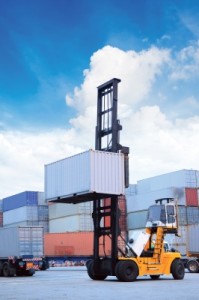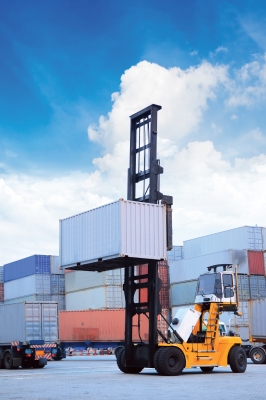 The earlier reported June 1 implementation of the load port survey (LPS) on containerized cargoes is unlikely to pass since the Philippine Bureau of Customs (BOC), as of this week, has yet to release an order covering the program.
The earlier reported June 1 implementation of the load port survey (LPS) on containerized cargoes is unlikely to pass since the Philippine Bureau of Customs (BOC), as of this week, has yet to release an order covering the program.
It now seems likely that the pre-shipment inspection policy will be implemented within the third quarter of the year, according to BOC sources.
A PortCalls source pointed out that the LPS requires a customs administrative order (CAO), which would have to be published first in a nationally circulated newspaper before the policy takes effect 15 days later.
The issuance of a CAO is normally followed by a customs memorandum order (CMO), which operationalizes the CAO.
Earlier, BOC had announced that the target implementation of the LPS was June 1, with a transition period of 30 days within which no penalties will be meted out on those who have yet to comply with the LPS requirement.
A draft CAO earlier obtained by PortCalls requires all bulk, break-bulk, containerized and non-containerized cargoes arriving and entering any port of entry in the Philippines to an LPS at the port of origin, unless otherwise exempt. Currently, only bulk and break-bulk shipments undertake such a requirement.
The following shipments are exempt from securing an LPS requirement as provided under the draft CAO:
- All shipments transported by air;
- Super Green Lane shipments;
- Importation of personal effects and household goods of a balikbayan and hisor her family under Republic Act No. 6768, as amended, Overseas Contract Workers and other returning residents;
- Consolidated shipments or full container load shipments with three or more consignees;
- Official importations of foreign embassies, legations, missions, consularoffices, and other agencies of foreign governments in the Philippines;
- Human remains and personal effects of the decedent accompanying the human remains;
- Importation of vehcles and motorcycles of balikbayan and returning residents;
- Cargoes transiting the Philippines and intended for a foreign destination,including shipments which are discharged from the carrying vessel for its final destination abroad provided that the stay of the transit cargo in the Philippines shall not exceed 30 days from the date of discharge
- Explosives and pyrotechnic products;
- Importations by government agencies, government-owned-and-controlled corporations and other government instrumentalities;
- Relief consignments as provided under Section 105(h) of the Tariff and Customs Code of the Philippines (TCCP), as amended; and
- Importations bound for Philippine Economic Zone Authority zones covered by an import permit.
All cargoes covered by an LPS are automatically exempt from physical and x-ray inspection, except in the following instances:
- The LPS report (LPSR) has been tampered or shows signs that the same has been tampered;
- The shipment is covered by an alert or hold order;
- The importer disagrees with the findings of the LPSR and requests that a discharge port survey be conducted in the presence of customs officers; and
- If the Commissioner of District Collector has derogatory information against the shipment.
Controversial measure
The pre-shipment inspection policy is controversial mainly because of the issue of who pays for the service.
Under the draft CAO, the accredited cargo surveyor (ACS) is allowed to charge fees payable by the exporter, unless otherwise agreed upon by and between the importer and exporter.
The old pre-inspection system carried out exclusively by SGS required the government to pay for the service.
As it is, the Port Users Confederation has opposed the measure, describing it as “unconstitutional” because it is a “revenue or tax measure” that cannot be implemented without proper legislation.
“The (Customs) commissioner (John Phillip Sevilla) will exceed his delegated authority by issuing regulations, which require destination inspection by the accredited cargo-surveying companies in certain case, thereby limiting the powers of the customs officer to examine and assess imported articles under the Tariff and Customs Code of the Philippines,” PUC said in a position paper.
The Federation of Philippine Industries Inc. (FPI) said it was not against the measure but noted government should shoulder all fees.
“It is absurd that the fees will be paid by the importers in order to just check the veracity of the detail of their importations, since they already knew it in the first place. Moreover, in view of the relationship between the PSI provider and the importer, the loyalty of the PSI will tend to bend to the importer,” FPI Chairman Jesus Arranza said.
The Chamber of Customs Brokers Inc. (CCBI) is suggesting that the LPS on containerized cargoes be made voluntary.
In a recent letter to Customs Commissioner John Phillip Sevilla, CCBI president Joseph Tabirara noted that the voluntary application of the LPS on box shipments would solve the “legal issue” that would arise from the impending issuance of a Customs Administrative Order (CAO) that, in its draft objective, said would “further implement Administrative Order AO 234A”.
CCBI noted a “CAO may not amend an AO”. It explained that amending AO 234A to cover containerized shipments in turn effectively amends Section 1401 of the TCCP.
The chamber pointed out that Republic Act 7650 (An Act Repealing Section 1404 And Amending Sections 1401 And 1403 Of The Tariff And Customs Code Of The Philippines, As Amended, Relative To The Physical Examination Of Imported Articles) “was passed when the Comprehensive Import Supervision Scheme (CISS) was in force”. At that time it was government “paying for the services of the surveyor doing the pre-shipment inspection.”
The draft CAO’s provision requiring exporters to pay the LPS will run “contrary to internationally and judicially accepted International Commercial Terms (INCOTERMS) 2010,” according to CCBI.
Save for Delivered Duty Paid, all buyers’ obligations under INCOTERMS 2010 provide that “the buyer must pay for the cost of any mandatory pre-shipment inspection, except when such inspection is mandated by the authorities of the country of export”, the Chamber pointed out.
The additional cost will be passed on to the ultimate buyer – Filipino consumers, it added.
Image courtesy of potowizard / FreeDigitalPhotos.net.





